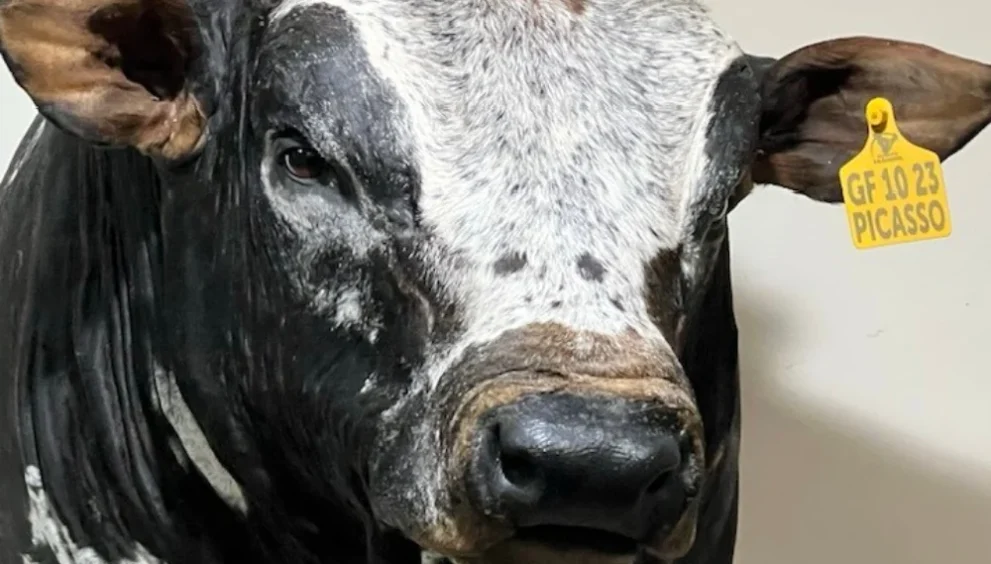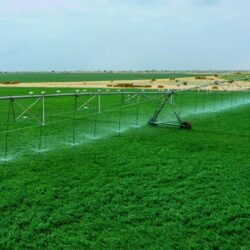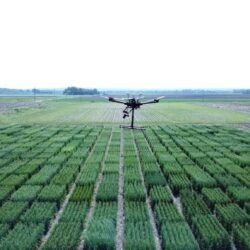- R8-million bull’s targeted return on investment and profit expected in three years time.
- Semen from the the bull’s father Picasso currently fetches R88 000 a straw.
- Collins Tafireyi, a former journalist, is working on a leased farm in Zimbabwe.
Over the weekend, Zimbabwean farmer Collins Tafireyi paid R8 million for a single bull at an auction in Mpumalanga, suddenly bringing attention to his ambition to become one of Africa’s biggest pedigree Boran stud breeders.
The 44-year-old, once a freelance journalist for KickOff magazine in Zimbabwe, bought the bull named Cyclone from Hurwitz Farming in Ermelo.
He spoke to News24 about the purchase, how he expects to make a return on that investment, and the road to becoming a pedigree breeder.
Lenin Ndebele: A bull for R8 million! How long do you expect it to take to realise a return on your investment?
Collines Tafireyi: We have a grand plan to produce progeny from his semen. This is not just a bull, it is a pedigree bull of the highest quality coming from proven bloodlines and scarce genetics in the Boran industry.
This bull is not for your common breeding, it is a bull bought to build and solidify future genetics in the breed. The return on investment is huge, and we have a vision and plan to get the best out of Cyclone.
In three years, we will have all our money back, plus profit.
Just like the bull himself, his progeny won’t sell cheap. All serious breeders will come to buy as soon as we start our sales.
The game of stud breeding is about genetics and this is what we are doing and are very committed and passionate about.
Primarily we are targeting producing over 200 calves of his first Zimbabwe progeny in the next 10 months.
This will be achieved through massive embryo production.
Ndebele: The bull you bought, can you tell us its history, origin, weight, and other statistics
Tafireyi: Cyclone is a 2018 bull, bred by the biggest Boran stud in South Africa, Hurwitz Farming in Ermelo, Mpumalanga born out of Picasso and Cremora. He is a bulk that ticks all the boxes.
He’s faultless and has already proven his abilities in the herd of his original owner.
He comes from a rich genetic family – the very best in the Boran breed. His father Picasso is a breed legend who produced magical offspring at Hurwitz farming and they are dominant across the Boran society of South Africa, that is why he fetched such a lofty price.
Everyone wanted that bull. Every serious stud breeder needs a premium herd sire to ensure quality production of stud animals.
Cyclone has joined Sinyo Borans to perform and concretise our position as the very best in Zimbabwe and Africa.
Ndebele: When did you start breeding and what has the journey been like?
Tafireyi: We started in 2021 mainly using Boran bulls on mixed breeds, but after researching a lot about the business of stud breeding we started to invest in pedigree animals.
With the thrust being on breeding quality animals for sale to other breeders, we realised that there are not enough pedigree cattle in Zimbabwe, so we grabbed the opportunity.
I have travelled far and wide interacting with successful breeding farmers across South Africa and this has empowered my knowledge of the Boran and other stud cattle.
Ndebele: What are your long-term plans in that space?
Tafireyi: We are already in the trenches, just to give you an idea of what we are doing, in 2023 we broke a record in the breed, and bought 12 semen straws of breed legend Picasso GF 10 -23, who happens to be the father of our newly acquired bull Cyclone for R88 000 per straw.
We have done a highly successful embryo project and are expecting the birth of more than 100 calves of highly valuable genetics (hotcakes in cattle breeding) and bloodlines beginning in late 2024.
So the plan is to breed high-quality animals in huge numbers for sale to Zimbabwean breeders and other farmers across the world.
We want to make the Zimbabwean-bred Boran the best in the world.
Ndebele: More black farmers are getting interested in this industry, and as a Zimbabwean, has the land reform in a way helped cultivate this interest?
Tafireyi: Yes. The government did well in allowing the majority of Zimbabwean people to be involved in farming ahead of the minority. Great farming knows no colour of skin, and black farmers can also do well and match their white counterparts.
I fully support the land reform programmes and they must benefit all progressive Zimbabwean farmers like myself. We have a sovereign right and obligation to put our country on the map and be the hub of top genetics across all breeds. We are already in it and we will achieve all our goals.
Ndebele: In Zimbabwe, where is your farm, how big and how much of what breeds do you have, and do you need extra land?
Tafireyi: We are currently in Hwedza and Charter, Mashonaland East province.
We are farming on leased land. Our herd is slightly below 500 studs (registered) animals and over 400 commercial (mixed breed cattle) in Zimbabwe, and in South Africa we have over 500 stud animals which will also move home to Zimbabwe.
We are leasing out grazing land from fellow farmers, while we await allocation of land from the government.
Ndebele: What can you tell us about yourself?
Tafireyi: I am a young passionate and proudly Zimbabwean businessman and farmer.
My vision is to make the Zimbabwean-bred Boran the very best in the world. I also want to play a huge part in the rebuilding of our national herd.
What I am doing is going to transform the whole cattle and beef industry in our country, and in a few years to come, Zimbabwe will be a hub of top genetics, not only the Boran but also Ankole cattle. We have our Ankole cattle herd still outside the country and plans are underway to bring it home to Zimbabwe.




